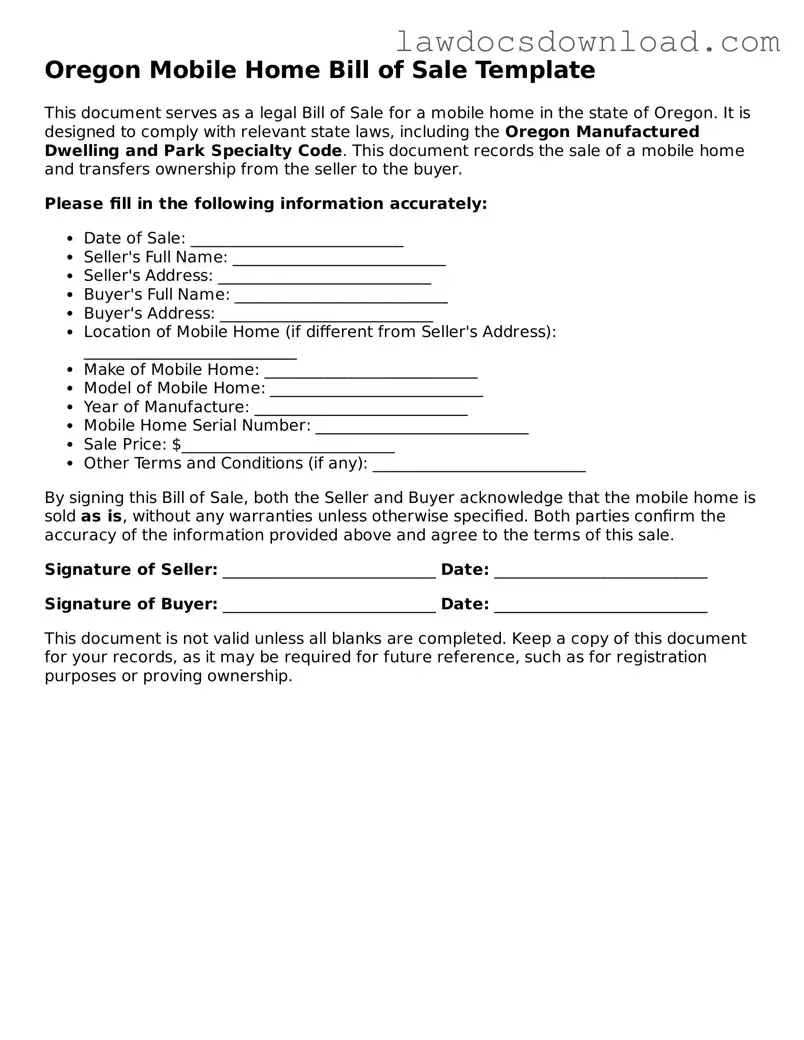Legal Oregon Mobile Home Bill of Sale Form
The Oregon Mobile Home Bill of Sale form is a legal document that records the sale and transfer of ownership of a mobile home from one party to another within the state of Oregon. It serves as a vital piece of evidence, providing a written agreement that details the terms of the sale, including the price, the identities of the buyer and seller, and the mobile home's specifics. This document is crucial for both parties to ensure a smooth and legally sound transaction.
Launch Mobile Home Bill of Sale Editor Here

Legal Oregon Mobile Home Bill of Sale Form
Launch Mobile Home Bill of Sale Editor Here

Launch Mobile Home Bill of Sale Editor Here
or
Free Mobile Home Bill of Sale
Get this form done in minutes
Complete your Mobile Home Bill of Sale online and download the final PDF.